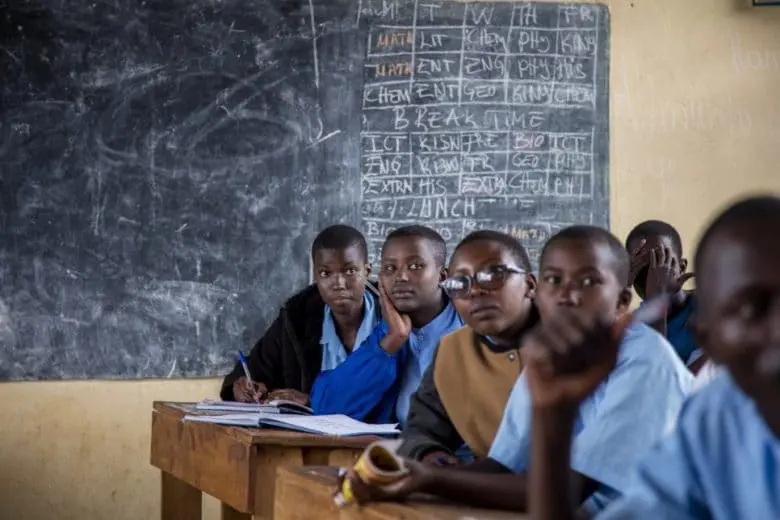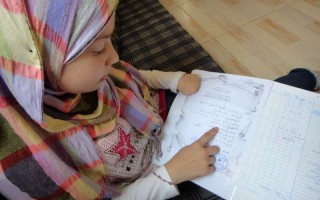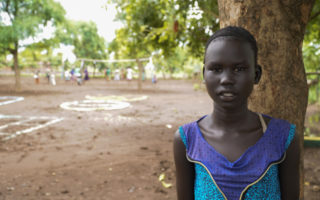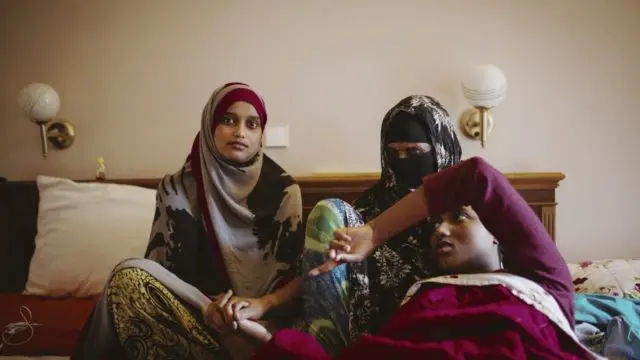
Burundian refugee students attend class at Paysannat L school, in Mahama refugee camp, Rwanda, February 2018. © UNHCR/Georgina Goodwin
GENEVA/WASHINGTON – The average annual cost of educating refugees is less than 5 percent of public education expenditure in developing nations hosting 85 percent of the world’s refugees, according to a joint World Bank – UNHCR report released today.
The principle of inclusive education, in this case, opening education up to all refugee children and their inclusion into national education systems can also lead to better services for local communities in host countries. This can be achieved at an estimated annual cost of US$4.85 billion globally. This is a pre-COVID estimated cost of educating all refugees and is likely to increase as the impacts of the pandemic continue to unfold.
The Global Cost of Inclusive Refugee Education report provides a standardized methodology to estimate refugee education costs across all host countries. It hopes to catalyze the development of country-level costed refugee-inclusive education plans.
“Wherever they are, children must go to school. Education can help refugee children and youth to succeed despite the severe challenges they face,” said Mamta Murthi, Vice President for Human Development, World Bank. “Providing quality education for all school-aged children in countries affected by fragility, conflict, or violence will require the international community and host governments to come together in the spirit of cost and responsibility sharing, but, as the report finds, it is within our reach.”
At mid-2020 the number of forcibly displaced people globally surpassed the 80 million mark, accounting for one percent of the global population. Among them were 26 million refugees, half of whom are below the age of 18. Many of these children live in protracted crises. They often spend long periods, if not the entirety of their schooling years, in displacement. Educating them is of paramount importance to their future and self-sufficiency.
“Refugee children and youth belong in schools, like all children. For boys and girls forced to flee violence and persecution, inclusion in national education systems means hope and a critical opportunity to define their future, realize their potential,” said Raouf Mazou, UNHCR Assistant High Commissioner for Operations. “Our study clearly shows that this is possible with a genuine commitment and with what is a manageable price tag in the global context.”
The report provides a “what it would take” figure rather than international commitments and obligations or current domestic expenditure on refugee education. Challenges remain in funding refugee education adequately, sustainably, and in a coordinated manner. There is an urgent need to improve the coordination of education financing in fragile and conflict-affected situations.
Funding is not the only condition for universal access and completion of education. While the report is focused on estimating the cost of access to education for refugee children, the importance of improving the quality of education cannot be ignored. The eradication of learning poverty, that is, being unable to read and understand a simple text by age 10, applies to host country populations and refugee children alike.
The World Bank Group (WBG) is one of the largest sources of funding for refugee education. Our priorities focus on building inclusive and adaptable education systems in fragile and adverse environments; strengthening skills and resilience of individuals whose lives and education are affected by adversity; and improving education services for displaced populations and host communities.
UNHCR, the UN Refugee Agency, protects people forced to flee their homes because of conflict and persecution. We work in over 130 countries, protecting millions of people by responding with life-saving support, safeguarding fundamental human rights and helping them build a better future.
For more information about the World Bank, please visit : www.worldbank.org/education
- Follow the World Bank on Twitter: @WBG_Education
For more information about UNHCR, please visit : www.unhcr.org/education
- Follow the UNHCR on Twitter: @refugees
World Bank Media Contacts:
- Kristyn Schrader-King, kschrader@worldbank.org
- Karolina Ordon, kordon@worldbankgroup.org
UNHCR Media Contacts:
- Rebecca Telford, UNHCR Chief of Education, telfordm@unhcr.org
- Andrej Mahecic, mahecic@unhcr.org
Originally published by UNHCR on 25 February 2021.





